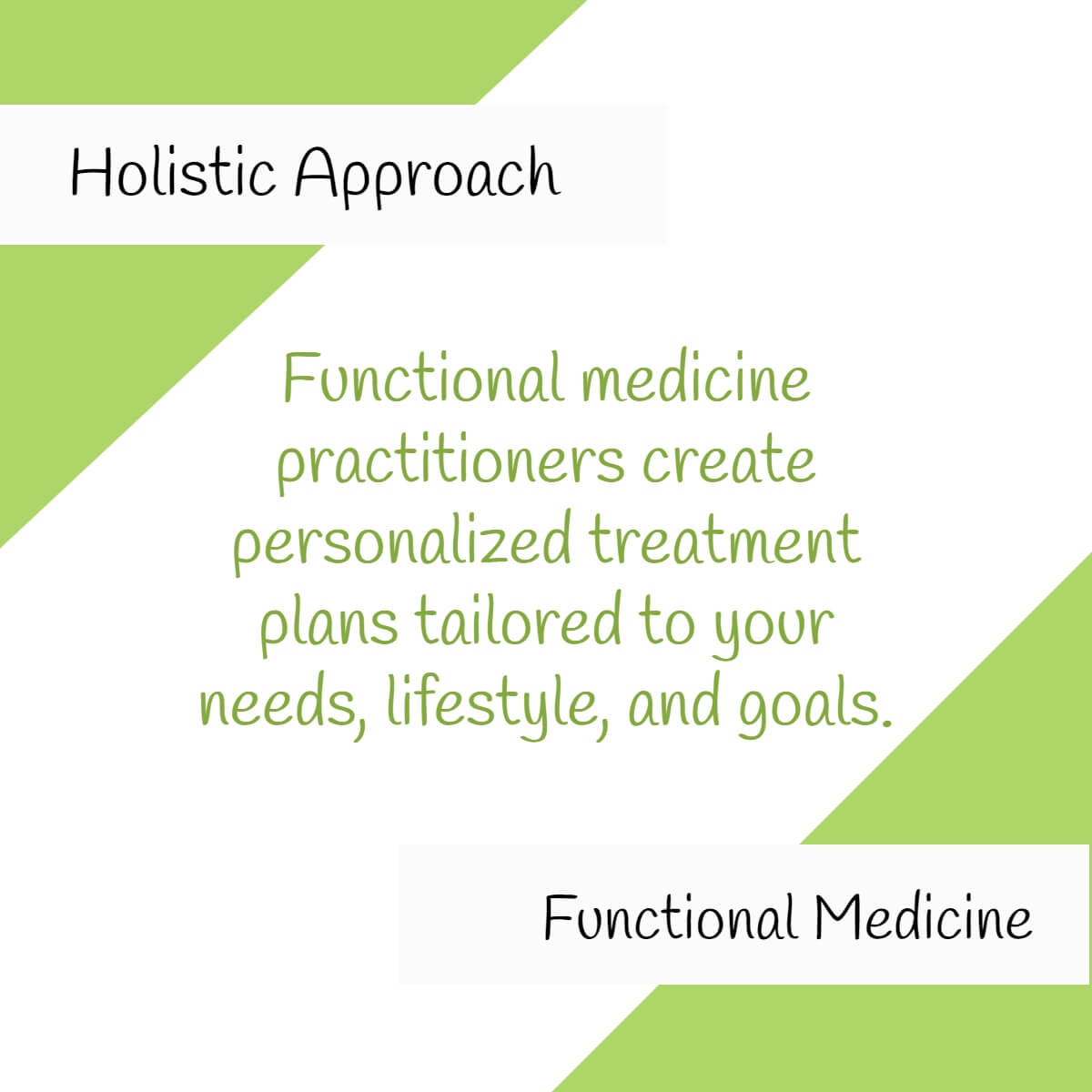
Functional medicine is a patient-centered approach to healthcare that seeks to understand the interconnectedness of various bodily systems, including emotional and mental health. It acknowledges that our physical health, emotional well-being, and mental health are all intricately linked, and imbalances or dysfunctions in one system can have cascading effects on the others. Here’s how functional medicine addresses the interconnectedness of these systems:
1. Holistic Assessment:
Functional medicine practitioners take a holistic approach to patient assessment. They consider not just the physical symptoms but also the patient’s emotional and mental health, lifestyle, genetics, and environmental factors. This comprehensive assessment helps identify the root causes of health issues, many of which may be interconnected.
2. Identifying Underlying Causes:
Functional medicine aims to identify and address the underlying causes of health problems rather than just treating symptoms. These underlying causes can include nutritional deficiencies, hormonal imbalances, chronic inflammation, and the impact of stress and emotional factors.
3. Individualized Treatment Plans:
Functional medicine recognizes that every individual is unique. Treatment plans are personalized to address the specific imbalances and dysfunctions present in a patient’s body. This approach extends to emotional and mental health, as imbalances in these areas are often interconnected with physical health issues.
4. Nutritional and Lifestyle Interventions:
Nutrition plays a vital role in emotional and mental health. Functional medicine practitioners use dietary interventions to correct imbalances and deficiencies. They may recommend specific diets, supplementation, and lifestyle changes to support brain health and emotional well-being.
5. Stress Management:
Functional medicine recognizes the profound impact of chronic stress on both physical and mental health. Practitioners often incorporate stress management techniques such as meditation, mindfulness, and relaxation exercises to help patients manage their stress levels and reduce the negative impact on emotional and mental well-being.
6. Gut-Brain Connection:
The gut-brain connection is a central focus in functional medicine. Research has shown that the gut microbiome has a significant influence on mental health. Imbalances in the gut can contribute to conditions like depression and anxiety. Functional medicine often addresses gut health through dietary changes, probiotics, and other interventions.
7. Hormonal Balance:
Hormones play a critical role in emotional and mental health. Functional medicine practitioners assess and address hormonal imbalances, particularly in conditions like PMS, perimenopause, and menopause, which can have a substantial impact on mood and mental well-being.
8. Collaboration and Integration:
Functional medicine encourages collaboration among various healthcare providers, including nutritionists, therapists, and mental health professionals. This collaborative approach ensures that all aspects of a patient’s health, including emotional and mental well-being, are addressed comprehensively.
9. Patient Education:
Functional medicine places a strong emphasis on patient education. Patients are encouraged to understand the interconnectedness of their bodily systems and how their choices impact their overall health. This empowerment can lead to more active engagement in their own well-being, including emotional and mental health.
In summary, functional medicine takes a holistic and integrative approach to healthcare that recognizes the interconnectedness of bodily systems with emotional and mental health. By addressing the root causes of health issues and customizing treatment plans, functional medicine practitioners aim to not only alleviate symptoms but also improve overall well-being, including emotional and mental health. This approach empowers patients to take control of their health and achieve a higher quality of life
